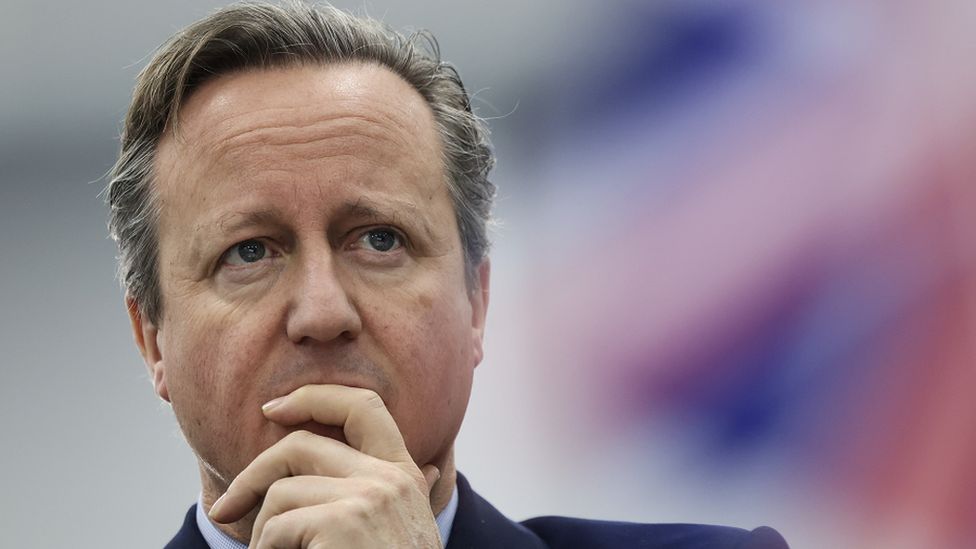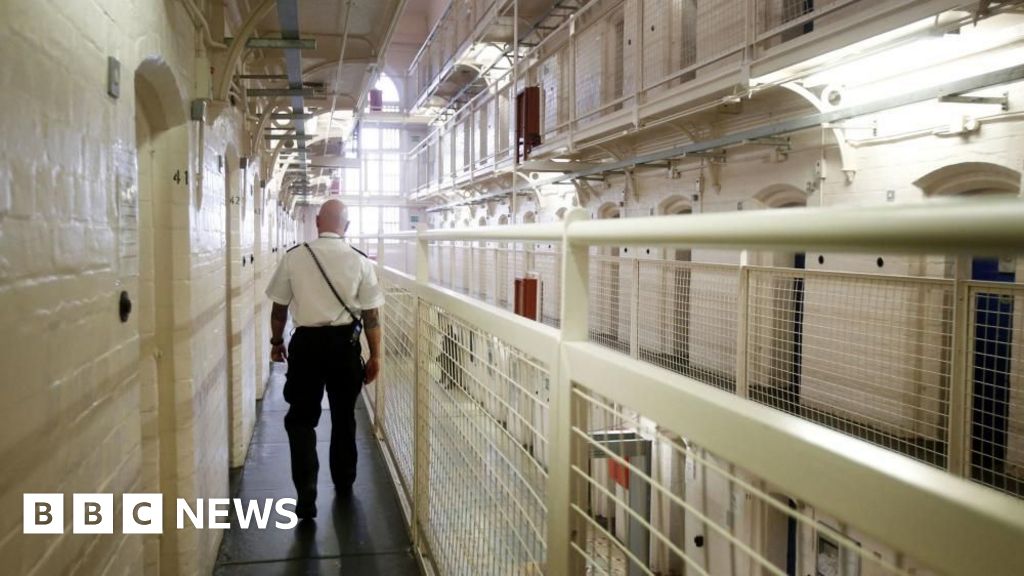ARTICLE AD BOX
 Image source, No 10
Image source, No 10
Lord Cameron said the UK had sent the Houthis an "unambiguous message"
The UK had "no choice" but to take military action against Houthis in Yemen over their attacks in the Red Sea, the foreign secretary has said.
Lord Cameron said the UK had given the group "warning after warning" before joining US-led strikes this week.
Writing in the Sunday Telegraph, he said prices would rise in the UK if Houthis blocked important trade routes.
The pro-Hamas group have been attacking ships in the Red Sea, claiming to be targeting Israel over the war in Gaza.
Their attacks on cargo ships - some of which have no clear connection to Israel - have led major shipping companies to divert vessels away from the Red Sea, instead taking a longer route around southern Africa.
Lord Cameron said the UK took part in the strikes to defend "freedom of navigation".
He also suggested Britain could strike Houthi targets again if their attacks continued.
"If the Houthis deny this passage to ships, vital supply chains are threatened and prices will go up in Britain and across the globe," he said.
"We will work with allies. We will always defend the freedom of navigation. And, crucially, we will be prepared to back words with actions."
The Houthis are a political and military group which control a large part of Yemen, including the capital. They are backed by Iran, Israel's arch-enemy.
The Houthis have declared their support for Hamas and claim they target any ship travelling to, or owned by, Israel. They have carried out at least 27 attacks since 19 November, according to the US, and have launched a series of drones and missiles towards Israel.
But Lord Cameron said the Houthi claim that their attacks were linked to the war in Gaza was "nonsense".
"They've attacked ships from countries all over the world, heading to destinations right across the globe," he wrote.
He added that the joint action "will have gone some way to degrade Houthi capabilities built up with Iranian backing".
US-led strikes against Houthi targets began early on Friday and were described by Prime Minister Rishi Sunak as "limited, necessary and proportionate action in self-defence".
On Saturday, a Houthi spokesman told Reuters the strikes had no significant impact on the group's ability to affect shipping.
Mr Sunak has been criticised by some opposition parties for not consulting Parliament in advance of the strikes, though the government does not have to do this.
He will give his first statement to MPs on the matter on Monday.
In an interview with the Mail on Sunday, Mr Sunak said the world was the "most unstable it had been for decades" and the UK could not afford to avoid taking action in the Red Sea.
Labour leader Sir Keir Starmer defended his support for the strikes in the face of criticism from some on the left of his party, arguing that "protecting trade, security and lives are paramount to our national interest".
US President Joe Biden has said there will be further retaliation against the Houthis should the group continue with its "outrageous behaviour".
A spokesman for the Houthis said there was "absolutely no justification" for the attacks and that the group would continue to target Israeli ships.
Tens of thousands of Yemenis gathered in several cities on Friday in protest at the strikes, with many burning Israeli and American flags.
Houthis control north Yemen, capital Sanaa and the Red Sea coastline. The armed group declares themselves to be part of the Iranian-led "axis of resistance" against Israel, the US and wider West.

 1 year ago
120
1 year ago
120








 English (US) ·
English (US) ·